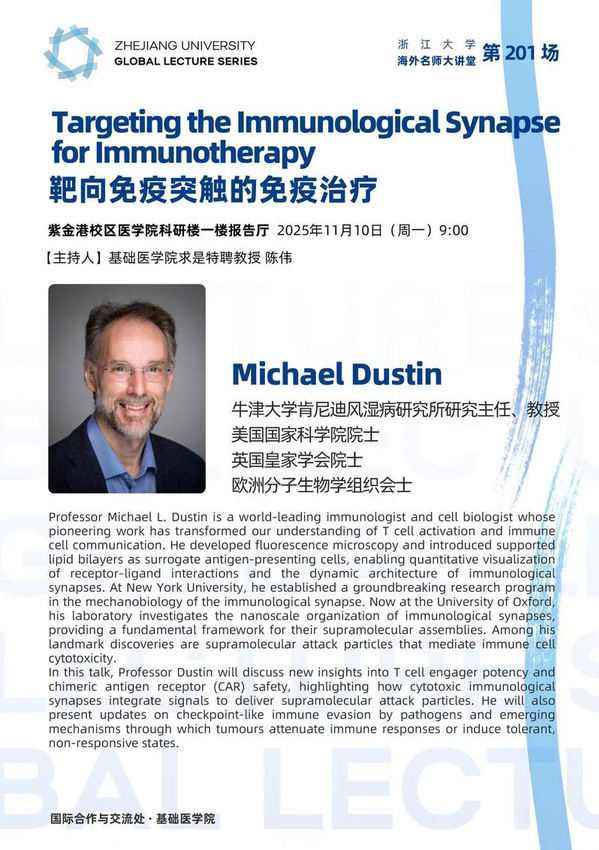Targeting the immunological synapse for immunotherapy
Time: 9:00
Venue: Zijingang Campus
Speaker: Michael Dustin
Category: Talk & Lecture

Speaker: Michael Dustin
Venue: Ground Floor Lecture Room, Research Building, School of Medicine, Zijingang Campus
Abstract: Professor Michael L. Dustin is a world-leading immunologist and cell biologist whose pioneering work has transformed our understanding of T cell activation and immune cell communication. He developed fluorescence microscopy and introduced supported lipid bilayers as surrogate antigen-presenting cells, enabling quantitative visualization of receptor-ligand interactions and the dynamic architecture of immunological synapses. At New York University, he established a groundbreaking research program in the mechanobiology of the immunological synapse. Now at the University of Oxford, his laboratory investigates the nanoscale organization of immunological synapses, providing a fundamental framework for their supramolecular assemblies. Among his landmark discoveries are supramolecular attack particles that mediate immune cell cytotoxicity. In this talk, Professor Dustin will discuss new insights into T cell engager potency and chimeric antigen receptor (CAR) safety, highlighting how cytotoxic immunological synapses integrate signals to deliver supramolecular attack particles. He will also present updates on checkpoint-like immune evasion by pathogens and emerging mechanisms through which tumours attenuate immune responses or induce tolerant, non-responsive states.






